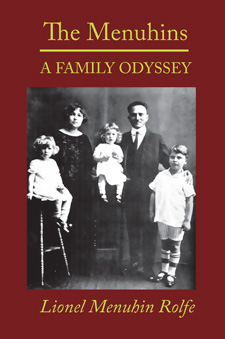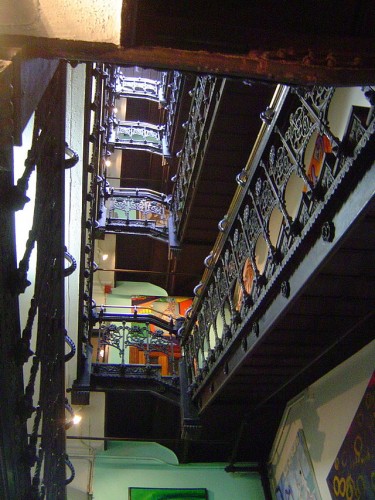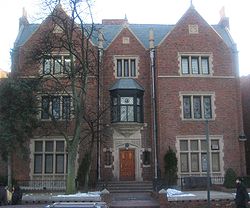DEMOLITION OF PALISADES BUILDING EVOKES FOND MEMORIES OF VILLAGE BOOKS
By Bob Vickrey
Shortly after the lunch hour on January 6th, I heard the first loud crash of a crane knocking down the walls of the buildings on North Swarthmore Avenue in Pacific Palisades, directly across the street from my house on Monument. When I walked outside to see which of the former businesses had taken the first hit, I saw the demolished back wall of Village Books.
As a booklover and former publisher’s representative, I began to wonder if there was some kind of international conspiracy against bookstores. First, Jeff Bezos turned the business on its head with Amazon.com; then billionaire investor and landlord Charley Munger decided Dutton’s Brentwood Books was an expendable commodity, and now, even the guy operating the crane for the demolition company employed by Caruso Affiliated decided he didn’t like bookstores either. Read more
Umberto Tosi’s Novel “Our Own Kind”Continues With Chapter 10, “Gordon’s Knot.”
(Copyright © 2015 by Umberto Tosi, all rights reserved.)
—————
Umberto Tosi‘s latest novel is Ophelia Rising, a literary historical novel about Shakespeare’s fair maiden before and after Hamlet.
GORDON’S KNOT
The social worker doesn’t make eye contact. She squints slightly through wire-rimmed glasses as she puts her ballpoint pen to the sheet of paper on her official clipboard, her shoulders hunched as if somebody might peek. She’s only slightly plump, slightly fortyish, slightly rouged, all neutral in a gray suit and sensible shoes, except for her dyed reddish hair that needs a touch-up. She clicks off questions in with a lets-get-it-over flatness, without follow-ups. Benny gets that Ms. Gray Suit already made up her mind.
Benny tries to nuance and elaborate his responses, but she’s having none of that. He feels impatient too, thirsty for a martini at the Dog, where he would be, having taken the rest of the afternoon off. Ms. Gray Suit has him cornered in a tight, windowless bleach-lit meeting room in the basement of the courthouse, a good place to get the third degree . He had hoped she would come to his home – which I had made spotless for the occasion – with his daughters at play in the yard and all demonstrably right with his parent world. Turns out the social worker had already gone by his daughter’s school, and met with them privately in the principal’s office. Ben steams himself up imagining Gray Suit putting his girls on the spot about whether they would like to live with neurotic, albino daddy or manic-depressive, vodka-orange-juice tippling mommy. Read more
Aaliya Saleh’s Phantom Life
An Unnecessary Woman. Rabih Almeddine. New York: Grove Press, 2013. 291 pp.
Leslie Evans
Aaliya Saleh, the 72-year-old protagonist of Rabih Almeddine’s fifth novel, has lived in Beirut all her life. She has seen her once-cosmopolitan city descend into seemingly perpetual communal strife. After Yasser Arafat’s Palestine Liberation Organization’s failed attempt to overthrow the Jordanian monarchy in 1970, in which thousands of Palestinians died, the PLO gunmen were expelled into Lebanon.
There they staged guerrilla raids into Israel and became one pole in the civil war that raged from 1975 to 1990. Aaliya recalls reading Calvino’s Invisible Cities “while people killed each other outside my window.” At the midpoint, in 1982, Israel invaded, forcing the PLO into exile in Tunisia, and leaving behind a new enemy, the Shi’ite Hezbullah militia, which has contested ever since for dominance against Lebanon’s Christian and Sunni Muslims, while periodically launching attacks over the border into Israel, which draws the Israelis back into Lebanon.
Aaliya observes these events with stoic distaste, hating all of the gun-toting armies, militias, and gangs with Olympian impartiality. Liberated from an arranged marriage when her nasty, diminutive, and impotent husband divorces her at the age of twenty, still a virgin, she secures a marginal job as the only employee of a small bookstore, operated on a shoestring as a hobby project of a prosperous Beiruti. “There were more stupid stuffed toys than there were books, and everything was covered with dust. The bookstore had as much chance of making it as I did.”
She stays there until she retires when she is sixty-eight and the bookstore is sold out from under her. Thereafter she has been a recluse in the apartment she had first occupied on her disastrous wedding night when she was sixteen. It is owned by her ex-husband’s family and they resist every attempt by Aaliya’s relatives to force her out to allow their larger families to take it over. This gives her space for her books.
Chapter 20, The Latest Exciting Chapter From Mary Reinholz’s “Exit from Eden”
A glimpse of the Chelsea’s Inner Sanctum
By Mary Reinholz
The Chelsea Hotel’s house shrink was an uptown psychiatrist named Murray Grobnik who held fourth in a penthouse suite a few blocks from the Metropolitan Museum of Art on Fifth Avenue. His was a world away from my grubby little room at the boho hotel where I had recently considered a swan dive from the fourth floor balcony after learning that an undercover cop from the NYPD’s anti-crime street unit was looking for me.
Richard, the hotel’s desk clerk, said that Grobnik could prescribe something more effective than aspirin to relieve my headache and “obvious anxiety attack.” He made the appointment for me from his phone in the lobby, whispering that the good doctor was a patron of the arts who grew marijuana on his terrace and sometimes forgot to charge patients for treatment.
“He’s overextended and absentminded and some of his patients here really take advantage of him,” Richard confided. “They steal his prescription pads and one of them took his opiates when he wasn’t looking and threw a party on the 7th floor that lasted all night.” Read more
Oil Is the Cheapest It’s Been in Years, What’s There to Worry About?
Leslie Evans
The price for a barrel of American-based oil (West Texas Intermediate) this morning was $55.91. The last time it was in this range was in 2009, while in the last three years it had vacillated around $100, a drop of 44%. Regular gas is under $3 a gallon in every state except Alaska and Hawaii. Is this unmitigated good news or is there a downside to the new low prices? And if oil is so plentiful that the price is plunging does this mean we don’t have to worry about peak oil any more?
Why Is the Price Dropping?
At its most basic, what is happening is simple supply and demand. As the chart below shows, except for brief periods in early 2009 and 2012, demand over the last five years, until 2014, was running ahead of supply, pushing the price into the $100 a barrel range. Now, as storage facilities fill up, oil needs to be priced to clear.
The gap is being caused as much by a fall in demand as by a growth in supply. This is a result of the persistent recession in Europe, a slowdown in the Chinese and German economies, the aftereffects of the 2008 crash in America, where unemployment has since declined but where good paying jobs were replaced by minimum wage and part time work. Improved efficiency is also a factor. Read more
C. M. Sunday Interviews Lionel Rolfe
C. M. Sunday, violinist, violin teacher, and representative of the string instrument sales company SunMusicStrings, conducted a wide ranging interview with Lionel Rolfe, published December 27 in Reflexions, a new online magazine for string players.
Here is the link
“The Menuhins: A Family Odyssey” Back in Print
We are pleased to bring back into print this account of the family of famous musicians.
By Lionel Menuhin Rolfe
Available from Amazon.com
$13.95 Amazon price: $12.54 245 pp.
 The Menuhins is the story of a miraculous family of great musicians and religious leaders. It is told here by the nephew of Yehudi Menuhin, the violinist regarded as the greatest musical prodigy since Mozart. Elements of the story have been told before: how two Russian Jews living in San Francisco, Moshe and Marutha Menuhin, raised a brood of child prodigy musicians that astounded the world. It seemed the stuff of legend. Yehudi, with his violin and his younger pianist sisters, Hephzibah and Yaltah, displayed as children a musical gift rarely equaled by the finest musicians. But few outside the family have known the true dimensions of the Menuhin story, for the Menuhin children were not the first prodigies in the family’s unique history. For centuries, the Menuhin line had been producing geniuses, yet the the elder Menuhins withheld the details of Yehudi’s exotic lineage. There was the MaHaRal, a great rabbi and the creator of the legendary Golem; Schneur Zalman, the founder of Chabad Hassidism and the composer of powerful religious songs; and all the great Schneersohns, the hereditary first family of the Lubavitch Hassids. Although Rolfe, the son of Yaltah Menuhin, often focuses on his famous uncle, he has ventured beyond the Menuhin public image with an intimacy that only a Menuhin could bring to this family portrait. Long out of print, Boryanabooks is pleased to present this new edition of The Menuhins: A Family Odyssey.
The Menuhins is the story of a miraculous family of great musicians and religious leaders. It is told here by the nephew of Yehudi Menuhin, the violinist regarded as the greatest musical prodigy since Mozart. Elements of the story have been told before: how two Russian Jews living in San Francisco, Moshe and Marutha Menuhin, raised a brood of child prodigy musicians that astounded the world. It seemed the stuff of legend. Yehudi, with his violin and his younger pianist sisters, Hephzibah and Yaltah, displayed as children a musical gift rarely equaled by the finest musicians. But few outside the family have known the true dimensions of the Menuhin story, for the Menuhin children were not the first prodigies in the family’s unique history. For centuries, the Menuhin line had been producing geniuses, yet the the elder Menuhins withheld the details of Yehudi’s exotic lineage. There was the MaHaRal, a great rabbi and the creator of the legendary Golem; Schneur Zalman, the founder of Chabad Hassidism and the composer of powerful religious songs; and all the great Schneersohns, the hereditary first family of the Lubavitch Hassids. Although Rolfe, the son of Yaltah Menuhin, often focuses on his famous uncle, he has ventured beyond the Menuhin public image with an intimacy that only a Menuhin could bring to this family portrait. Long out of print, Boryanabooks is pleased to present this new edition of The Menuhins: A Family Odyssey.
Amazon.com paperback 245 pages List: $13.95, Amazon price: $12.54
Amazon.com Kindle edition $9.95
Disillusionment At The Ancestral Court
770 Eastern Parkway
BY LIONEL ROLFE
On the recent occasion of the publication of a paperback version of my first book The Menuhins: A Family Odyssey, which originally came out in hardcover in 1978, I recalled going to Brooklyn to meet my Hassidic ancestors. My mother Yaltah and aunt Hephzibah were prodigy pianists and uncle Yehudi the violinist had been described as the greatest musical prodigy since Mozart. At that point the three were alive in London, so a stopover in Brooklyn was appropriate. The first morning after my arrival in Gotham, I emerged from the black pits of the subway to find that number 790, the address of the Hassidic headquarters, was quite a bit further down Brooklyn’s Eastern Parkway. As I began the trek down the broad, shabby but still dignified boulevard, I felt my balding head and cursed myself for not having followed the advice of people who had told me to get some cover for my shiny dome. It doesn’t have to be a yarmulke; any type of hat would do, I had been told. “But wouldn’t that be dishonest?” I had asked. “I mean, I’m not an orthodox Jew.” “Just to show them respect,” had been the answer. Ah, in that case, I knew what would have been ideal: one of those jaunty black berets that my grandfather Moshe always used to wear. Moshe used to have an endless supply of them, one in this room, another in that, maybe even one in the chicken shed. A beret made you a dapper, worldly gentleman, and yet if you had come from the ghettoes of Eastern Europe, it eased your conscience about your naked head. But there were no berets in the ghetto shops. My pace quickened, and as it did so, the whirring worrying in my head that I would have to brave the Lubavitcher Court hatless also increased. Many a writer had been thrown bodily out of the Lubavitcher Court. On the other hand, the Schneersohns, the Lubavitchers, were my cousins. The Menuhins were but an offshoot of the famed Chabad father-to-son dynasty which presided over the Polish-Russian town of Lubavitch. Read more
MEMORIES OF BELLA BARTOK BY ANOTHER COMPOSER AND COLLEAGUE
BY EUGENE ZADOR
I know practically all of Bartok’s orchestral works, including his ballet and his opera. But I still don’t feel like an authority on his music and am not able to give you a profound analysis of his works. I leave it to the musicologists. Instead of this, I rather give you a few glimpses on his life and a few personal impressions, which might be even more interesting, since you can’t find them in books.
Many people claim now that they were Bartok’s friends. Just like hundreds of people claimed to be classmates of Abraham Lincoln after he became president. No, unfortunately, I was not one of Bartok’s friends. He lived in Budapest and I in Vienna, so we saw each other only when he came to Vienna, which was always a short visit. But when he was there, I was practically is only personal guide. He always notified me when he came. I waited at the station and we took a cab to his hotel. Bartok was the simplicity itself. He didn’t like fancy hotels, on the contrary, where he stayed was an old, cheap hotel on the Wiedner Hauptstrasse, but he didn’t care; It was near to the Musikvereinsaal (the concert hall) and to the Radio, where he performed.
The conductor of the Vienna Radio, Mr. Kabaska, wanted to meet him. I suggested to see him either at the hotel or in my home, but Bartok refused, and preferred to meet him in a Kaffeehaus, which is a kind of cafeteria, where you can sit for hours. Bartok smoked and I will never forget when he pulled out his old and beaten up metal cigarette container, refusing Mr. Kabaska’s cigarettes, offered him in a golden tabatiere.
Tosi’s Novel “Our Own Kind” Continues With “The Prophet Of Spring Street”
 By Umberto Tosi
By Umberto Tosi
(Copyright © 2014 by Umberto Tosi, all rights reserved.)
—————
Umberto Tosi‘s latest novel is Ophelia Rising, a literary historical novel about Shakespeare’s fair maiden before and after Hamlet.
7. THE PROPHET OF SPRING STREET
Here he comes, the prophet of doom. His bombast echoes off the bland glass and concrete of civic center. Shambling forward, hollering Gospel, as he hears it in his head, he parts lunch-hour pedestrians like the Red Sea. Every damn day. His booming could crack tree trunks:
“HELL! You’re all gonna go to H-E-L-L-! Hell! Hell! You’re goin’ to H-E-L-L-!”
Over and over, louder and louder until he arrives like a bad squall, spiral-eyed, tall and gaunt, with long blondish hair and beard bristling. He always wears a plus-size, cream brassiere like a helmet, D-cups akimbo like Viking horns, with the straps dangling, as he strides forward as if into a stiff wind, to the syncopated cadence of his remorseless chant:
“Ha-hell, ha-hell. You’re all goin’ to ha-hell, damn-a-nation and-a h-hell. You’re all-a-gonna-go-ta h-e-l-l-l-l!”
He’s a standing joke at the first-floor magazine office, where they can hear him bunkered from his midday, holy barrage inside the massive gray walls the old Times building. On this particular day, however, the hellfire rant stops suddenly. Down on the first floor, Benny sees Preacher Man’s face flush to the pane nearest his and Makeda’s desks. Preacher Man cups his hands against the glass and peers at them with Apocalypse eyes. His face floats disembodied against the dark glass like Jesus on the Shroud of Turin. His lips move soundlessly. Read more









